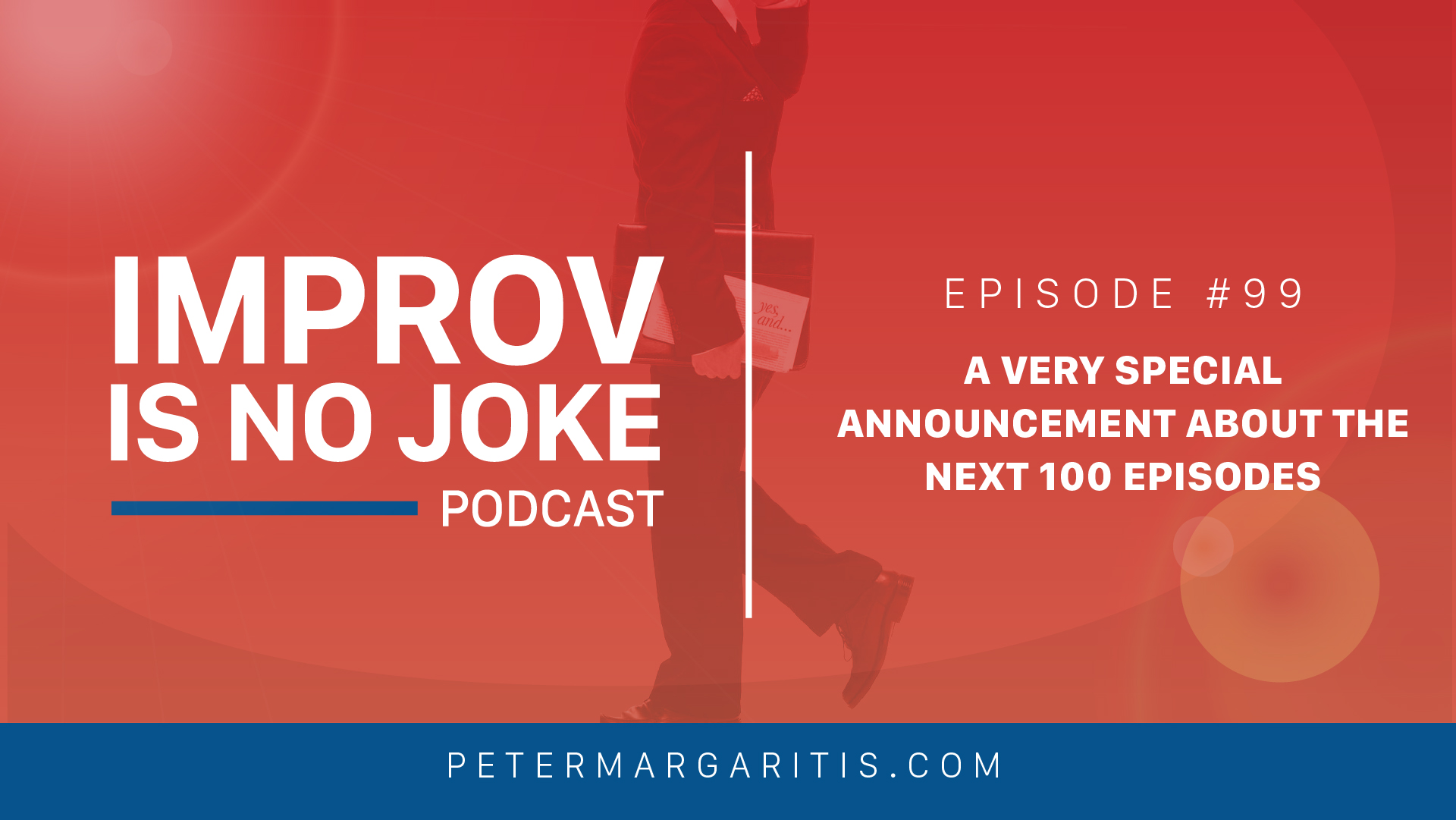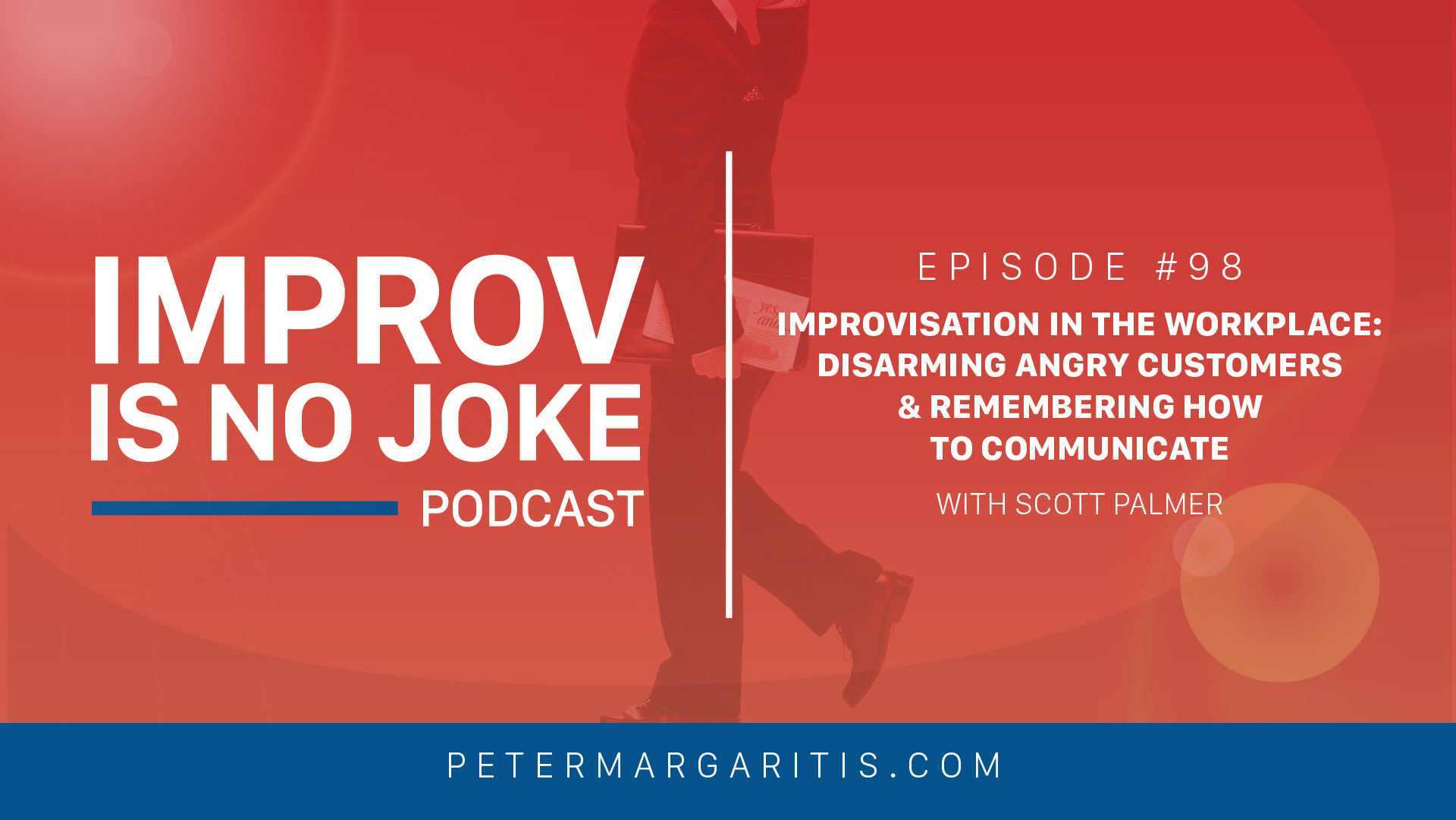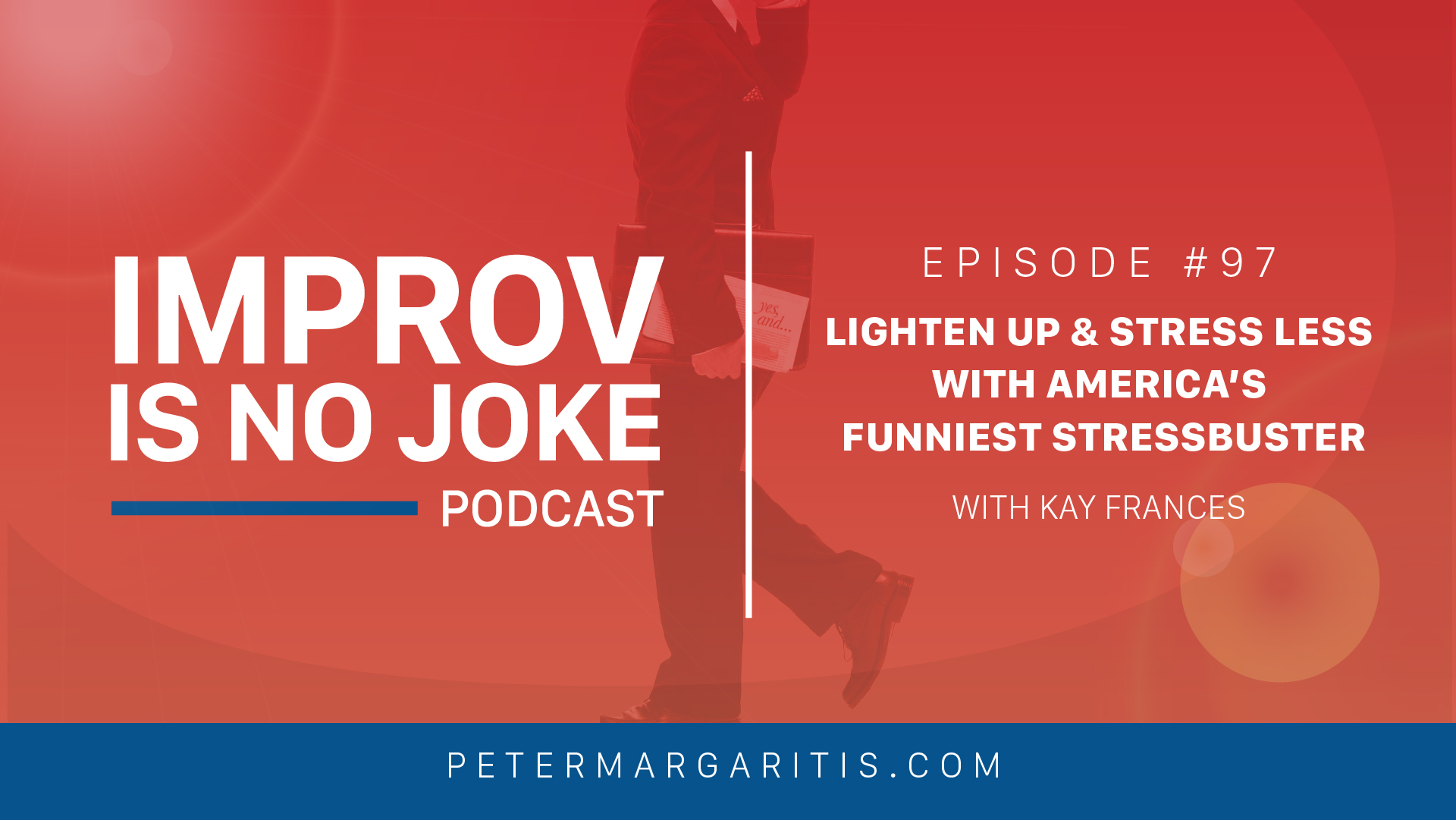I’ll be the first one to tell you improv isn’t all about comedy and making people laugh. However, my introduction to improv resulted from finding and using comedy as a coping mechanism to deal with several challenges life threw my way.
There is great power in being able to leverage comedy, laughter, and improv. The fundamentals of improvisation have been a literal lifesaver for me in dealing with highly stressful situations throughout my life. The fact is, stress is a part of our everyday lives. Stress can come from a variety of sources. For example, stress can come from daily frustrations, including our jobs, others from unexpected challenges, such as significant health issues, or a looming deadline as your work piles up around you.
You remember this saying, “A spoonful of sugar helps the medicine go down.” Mary Poppins was onto something here: to digest something undesirable but necessary – add something sweet to go with it! I favor taking this advice literally – sweets and snacks made available when you are in a crunch can undoubtedly go a long way, but so can humor.
Is there anything better than experiencing a terrific laugh? It’s one of those sensations that lightens your mood and makes you want more. When something is funny, it feels good – it’s sweet that can make medicine taste a little better. So, why are so many workplaces seemly devoid of humor? I often ask my audiences, “When was the last time your coworkers burst out into laughter, and it wasn’t at your expense?” Of course, the answer depends on your culture and your colleagues. But all too often, that humor isn’t as typical and present as it should be, and stress can be a big reason for that.
But, a regular dose of laughter reduces stress, and it’s desirable. A Forbes article written by Jacquelyn Smith cited a few statistics that validate the importance of humor. According to the article, “A Robert Half International survey, for instance, found that 91% of executives believe a sense of humor is important for career advancement; while 84% feel that people with a good sense of humor do a better job. Another study by Bell Leadership Institute found that the two most desirable traits in leaders were a strong work ethic and a good sense of humor.”
I get it though, people are in survival mode, just trying to get through until quitting. When you’re facing a strict deadline or enduring an impossible task, the last thing you probably want to hear is some joker saying, “Hey, did you hear the one about the priest, the rabbi, and Bill Clinton walking into a bar?” You want to rip their tonsils out. However, humor need not be a stand-up routine – it can be present in how you finish a request in an email or a brief quip in passing to a colleague in the lunchroom. It can also take more sophisticated forms that take more time – such as [kind] pranks when it’s someone’s birthday, or someone reaches a career milestone, or if your college football team beat your colleague’s football team.
The following are a handful of ways you can help decrease stress and hopefully increase humor and fun (all while being incredibly efficient and productive):
Smile. It seems so simple, but body language – especially a smile – can dramatically impact how you and all your coworkers feel. It takes the edge off tense moments; it communicates that you aren’t consumed with negative feelings; it makes you more approachable, and others will feel comfortable around you; it invites positive emotions.
Be prepared. The clown amuses no one at work that isn’t pulling their weight, shows up late to meetings, and can’t be relied on. Having humor in the workplace doesn’t mean you shirk your responsibilities. Humor is enjoyed with you, and those around you are confident – and that confidence, especially in the workplace, comes with being prepared for your job. Preparation for the days and weeks ahead will allow you to be less stressed and more confident – which will not only help you and your clients. It will help your colleagues.
Adapt. Adaptability is a HUGE part of improvisational humor – it IS improv. Many things in life can be stressful, but we can “go with the flow.” Adapting is simply the ability to readjust as you experience things – whether that readjusts your sales pitch or the time in the morning you give a presentation, or having to select a different menu item when your first choice is sold out. No matter the situation, it takes flexibility and confidence to address change head-on – and let’s face it, things are constantly changing, things rarely go as planned.
Have the right attitude. Your attitude affects everything. Since being little children, we’ve been told this – depending on our mood, and we’ll see the world a certain way that can either be positive or negative. It’s also incredibly contagious. No matter the source of your stress, your success in overcoming it depends on your ability to perceive things positively. You either can see your situation as a challenge and make the most of it, or you can succumb to it and let the stress win. Your ability to positively approach the workday will dramatically affect the vibe of your group – even if you have some Debbie Downers. Perhaps you won’t be able to win everyone over, but there will be plenty who will positively respond to your cheerful and witty vibes.
So you’re committed to bringing more levity to your workplace – good, you all need it! As you make an effort to get to know your team members and engage with them, you’ll soon be able to determine your comedic boundaries. Of course, most of you probably know your colleagues well enough to know your limitations already – but consider times where you need to collaborate with other teams, new clients, outside resources, etc. Just remember, wit and humor are appreciated, and it’s needed! So, let yourself laugh; doing so will reduce your stress and helps others reduce theirs. Laughter is the proven antidote, and it comes naturally when the company culture is conducive to it – so, be a part of it!





